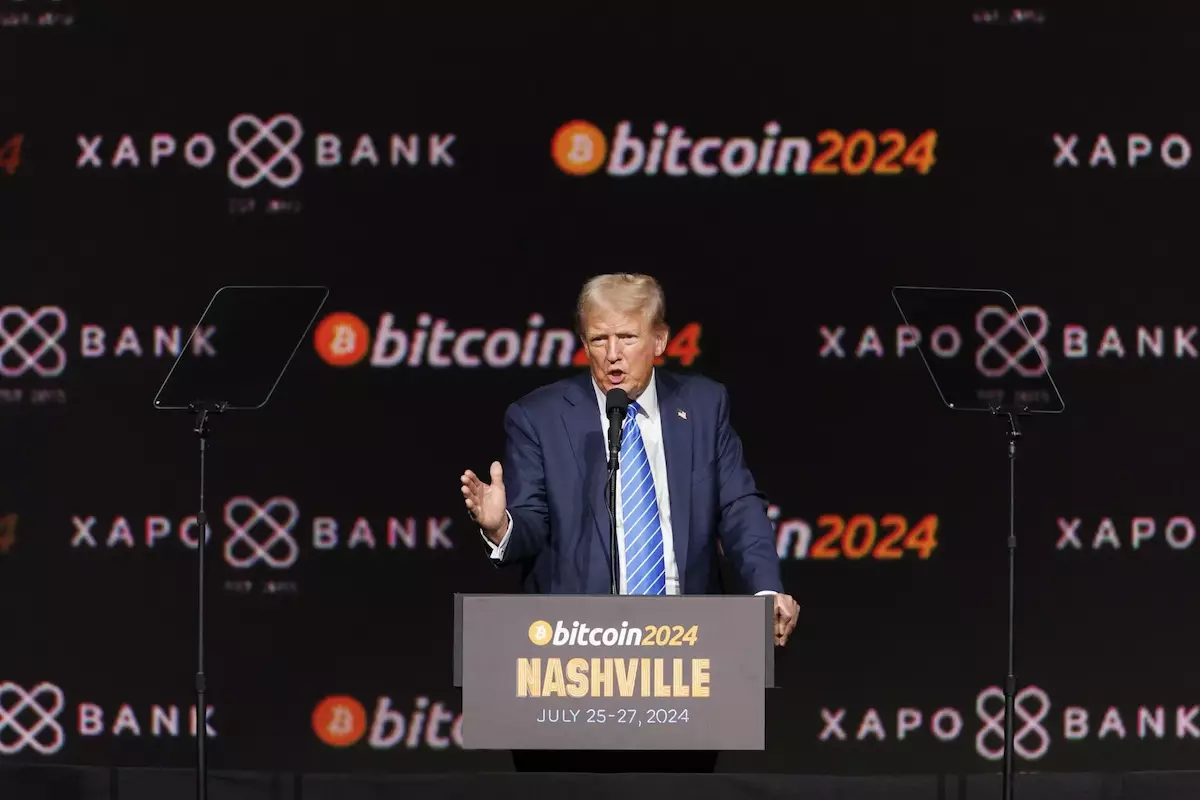The landscape of technology and finance has experienced seismic shifts over the past few years, and the realm of Web3 gaming stands to be particularly affected if Donald Trump returns to the White House. As a sector emblematic of innovation, community engagement, and digital asset ownership, Web3 gaming could see both disruptions and substantial opportunities depending on the regulatory environment fostered by a potential Trump administration.
Changing Attitudes Toward Cryptocurrency
In the past, Trump’s rhetoric surrounding cryptocurrencies has fluctuated dramatically, demonstrating a tendency to reflect broader concerns regarding economic stability. In 2021, he famously described Bitcoin as a “scam,” echoing worries about its potential destabilizing impact on the U.S. dollar. Fast-forward to today, and a notable evolution in his perspective signals a pivot toward a more crypto-friendly stance, potentially aligning with global trends advocating for blockchain integration and relaxed regulations.
This newfound openness has been echoed by his administration’s intentions to review policies that facilitate blockchain technology. Such a shift might foster an environment conducive to innovation, particularly in the rapidly evolving area of Web3 gaming, which increasingly relies on cryptocurrency for in-game economies and digital asset procurement.
Regulatory uncertainty remains a critical barrier for developers and gamers operating within the Web3 ecosystem. With the promise of a more lenient regulatory framework under Trump, Web3 gaming could enter a golden age of creativity and engagement. The industry’s reliance on tokenized currencies for transactions means that clear, attainable regulations will enable developers to innovate without the looming threat of legal ramifications.
In fact, the history of Trump’s first term illustrates the volatile nature of cryptocurrencies; during that period, Bitcoin reached an apex at nearly $20,000, underwent significant corrections, and even soared again amid changing market dynamics. This underscores how regulatory environments can heavily influence market performance, underscoring the necessity for stable and clear regulatory guidelines.
Potential Impact on the SEC
One of the most significant changes Trump has announced involves his plans to replace SEC Chair Gary Gensler, perceived as a more stringent regulator. A new appointment leaning toward a more pro-crypto philosophy could revolutionize the way in which Web3 gaming platforms navigate the regulatory landscape. Simplifying the rules around token issuance and trading would not only alleviate existing constraints but also attract investment from institutional players who have thus far remained on the sidelines.
The ramifications of such a shift would be instrumental for Web3 gaming companies striving for legitimacy. By mitigating regulatory hurdles, in-game assets could achieve a level of recognition that facilitates broader acceptance among gamers and investors alike, propelling the entire sector towards mainstream adoption.
As the digital landscape evolves, so, too, does the appetite for venture capital in innovative sectors. If a pro-crypto administration prioritizes blockchain funding, we could witness an influx of resources directed at developing decentralized gaming platforms. This surge in investment could catalyze partnerships between traditional gaming and emerging blockchain technologies, fostering collaborations that may pave the way for more accessible and engaging Web3 games.
The investment climate will likely influence which gaming projects gain traction and, eventually, market share. A positive regulatory environment can lead to innovative experiments, pushing the boundaries of what digital gaming can entail—creating virtual economies that not only capture revenue but also engage communities in more profound ways.
Global Implications of U.S. Policy Changes
The ripple effects of U.S. crypto policies extend far beyond its borders. Historically, other nations have taken cues from the U.S. regulatory frameworks when designing their approaches to digital assets. A welcoming stance toward blockchain technology could position the U.S. as a leader in the digital innovation space, likely fostering international collaborations.
However, contradictory regulatory frameworks arising among different countries could lead to conflicts. For Web3 gaming to thrive globally, nations will need to find a balance that aligns their domestic policies with international standards. As the potential for Trump’s return unfolds, the direction this administration takes could lay the groundwork for a cohesive global gaming strategy that values innovation while addressing the necessary regulatory considerations.
Trump’s potential re-entry into the Oval Office heralds both opportunities and challenges for the Web3 gaming industry. As discussions around cryptocurrency policy gain traction, the sector stands at a pivotal crossroads. A more supportive regulatory environment and a favorable SEC could usher in a new epoch of investment, innovation, and integration within the realm of Web3 gaming. However, the inherent volatility and uncertainties in both the crypto sphere and political landscape mandate vigilant observation as we anticipate the unfolding of these transformative developments.

